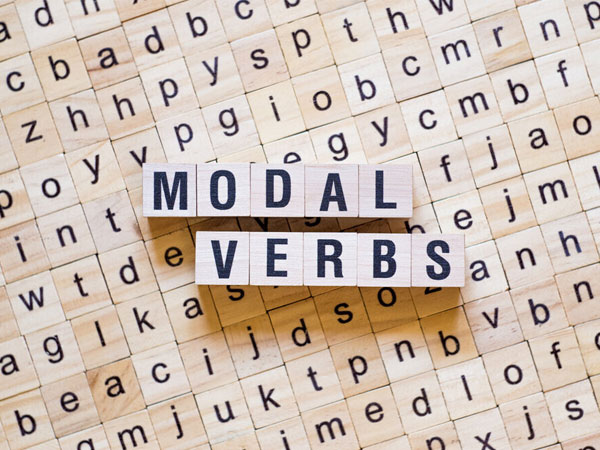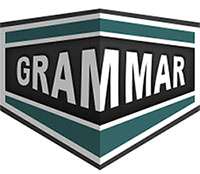Modals (نتیجه گیری در مورد گذشته)

در این درس در مورد Modals (نتیجه گیری در مورد گذشته) در زبان انگلیسی صحبت میکنیم.آیا شیوه استفاده از افعال مودال برای میزان اطمینان از اتفاقات گذشته را میدانید؟
به مثالهای زیر نگاه کنید تا ببینید چطور از must, might, may, could, can’t و couldn’t برای اتفاقات زمان گذشته استفاده میشود.
- An earthquake? That must have been terrifying!
- We don’t know for sure that Alex broke the coffee table. It might have been the dog.
- How did she fail that exam? She can’t have studied very much.
Modals یا فعلهای کمکی، در زبان انگلیسی برای بیان گونههای مختلفی از معنا و نیز توضیح دادن اطلاعات اضافی بکار میروند. در قالب “Modals (نتیجه گیری در مورد گذشته)” به بررسی استفاده از فعلهای کمکی در زمان گذشته میپردازیم.
مثالهایی از Modals
در زمان گذشته، فعلهای کمکی برای بیان مفاهیمی از جمله شرطی بودن، احتمالی بودن، نیاز به عملی بودن، عدم عملی بودن، پیشنهاد دادن و غیره، به کار میروند. در زمان گذشته، این فعلهای کمکی با استفاده از شکل گذشته آنها به کار میروند، به عنوان مثال:
- Must have + Past Participle: برای بیان اطمینان در مورد وقوع یک اتفاق در گذشته، بهعنوان مثال: “He must have arrived home by now.” (او باید تاکنون به خانه رسیده باشد.)
- Could have + Past Participle: برای بیان گزینههای مختلفی که در گذشته ممکن بودند، اما واقع نشدند، بهعنوان مثال: “She could have gone to the party, but she decided to stay home instead.” (او میتوانست به مهمانی برود، اما تصمیم گرفت خانه بماند.)
- Should have + Past Participle: برای بیان نیاز به انجام چیزی در گذشته، اما انجام نشدن آن، بهعنوان مثال: “I should have studied more for the test.” (باید بیشتر برای آزمون مطالعه کنم.)
- Would have + Past Participle: برای بیان گذشتهای که احتمالاً اتفاق میافتاد، اما به دلیل عواملی مانند شرایط، انجام نشد، بهعنوان مثال: “I would have called you yesterday, but I didn’t have your number.” (دیروز به شما زنگ میزدم، اما شماره شما را نداشتم.)
- Might have + Past Participle: برای بیان احتمال وقوع چیزی در گذشته، بهعنوان مثال: “He might have missed the train.” (او ممکن است قطار را از دست داده باشد.)
- May have + Past Participle: برای بیان احتمال وقوع چیزی در گذشته، بهعنوان مثال: “They may have gone to the park.” (آنها ممکن است به پارک رفته باشند.)
توضیحات گرامر

ما میتوانیم از افعال Modal برای نتیجهگیری استفاده کنیم ، حدس زدن اینکه با استفاده از اطلاعات موجود آیا چیزی درست است یا خیر. افعال Modal ای که انتخاب میکنیم نشان میدهد که تا چه اندازه درمورد احتمال اطمینان داریم. این درس درباره نتیجهگیری در مورد گذشته است.
must have
از must have + past participle زمانی که احساس اطمینان در مورد اتفاقی که افتاده داریم، استفاده میکنیم.
Who told the newspapers about the prime minister’s plans? It must have been someone close to him.
The thief must have had a key. The door was locked and nothing was broken.
Oh, good! We’ve got milk. Mo must have bought some yesterday.
might have / may have
از might have or may have + past participle زمانی استفاده میکنیم که فکر میکنیم ممکن است اتفاقی افتاده باشد.
I think I might have left the air conditioning on. Please can you check?
Police think the suspect may have left the country using a fake passport.
May have از might have رسمیتر است. در موارد مشابه میتوانیم از Could have نیز استفاده کنیم ولی کمتر متداول است.
can’t have / couldn’t have
از can’t have and couldn’t have + past participle زمانی که فکر میکنیم اتفاقی نیافتاده استفاده میکنیم.
She can’t have driven there. Her car keys are still here.
I thought I saw Adnan this morning but it couldn’t have been him – he’s in Greece this week.
نکات گرامری Modals (نتیجه گیری در مورد گذشته)
Modals یا افعال معین در زبان انگلیسی شامل فعل هایی هستند که به صورت مدل (model) یا قالبی برای بیان تعهد، تمایل، پیشنهاد، نصیحت، اجازه دادن و… به کار میروند. در زیر، ده مورد مربوط به Modals در زمان گذشته را بیان خواهم کرد:
- افعال Modal در زمان گذشته با ریشه فعل نشان میدهند که عمل در گذشته انجام شده بوده است. به عنوان مثال: “I should have studied more for the exam.” (باید بیشتر برای آزمون درس خوانده بودم.)
- برای تشخیص گذشته افعال Modal، از جعبه ابزار زمان گذشته استفاده میشود. به عنوان مثال: “She could have helped me yesterday.” (او میتوانست به من دیروز کمک کند.)
- برخی از افعال Modal در زمان گذشته همچنان به صورت معمول به کار میروند. به عنوان مثال: “He might have gone to the store already.” (او ممکن است قبلا به فروشگاه رفته باشد.)
- فعل Modal “should” در زمان گذشته برای ابراز پشیمانی استفاده میشود. به عنوان مثال: “I should have told her the truth, but I didn’t.” (باید به او حقیقت را گفته بودم، اما نگفتم.)
- فعل Modal “must” در زمان گذشته به معنای این است که شخص قطعاً انجام داده است. به عنوان مثال: “She must have known the answer, she’s always so smart.” (او قطعاً جواب را میدانست، همیشه خیلی باهوش است.)
- فعل Modal “may/might” در زمان گذشته برای ابراز شک و تردید استفاده میشود. به عنوان مثال: “He may have forgotten about the meeting.” (او ممکن است از جلسه فراموش کرده باشد.)
- فعل Modal “could” در زمان گذشته برای بیان توانایی در گذشته به کار میرود. به عنوان مثال: “I could have spoken Spanish when I was younger, but I never learned.” (میتوانستم زبان اسپانیایی صحبت کنم وقتی جوان بودم، اما هرگز یاد نگرفتم.)
- فعل Modal “would” در زمان گذشته برای بیان تکراری بودن یک عمل در گذشته استفاده میشود. به عنوان مثال: “Every summer we would go to the beach and swim all day.” (هر تابستان به ساحل میرفتیم و تمام روز شنا میکردیم.)
نمونه سوالات درباره Modals (نتیجه گیری در مورد گذشته)
 Which modal is used to express certainty about a past event? a) Could b) Would c) Should d) Must ANSWER: d) Must
Which modal is used to express certainty about a past event? a) Could b) Would c) Should d) Must ANSWER: d) Must- Which modal is used to indicate that something was possible but did not happen in the past? a) May have b) Might have c) Could have d) Would have ANSWER: c) Could have
- Which modal is used to indicate that an action was necessary in the past? a) Must have b) Should have c) Would have d) Could have ANSWER: b) Should have
- Which modal is used to express regret about a past event or action? a) Would have b) Could have c) Should have d) Might have ANSWER: c) Should have
- Which modal is used to express doubt or uncertainty about a past event? a) May have b) Would have c) Could have d) Must have ANSWER: a) May have
- Which modal is used to suggest that something would have been possible if certain conditions had been met in the past? a) Would have b) Might have c) Could have d) Should have ANSWER: c) Could have
- Which modal is used to indicate that something was unlikely to happen in the past? a) Should have b) Might have c) Could have d) Would have ANSWER: b) Might have
- Which modal is used to express a polite request or offer in the past? a) May b) Would c) Should d) Could ANSWER: b) Would
- Which modal is used to express a possibility or suggestion about a past event or action? a) Should have b) Could have c) Might have d) Must have ANSWER: c) Might have
-
Which modal is used to express an obligation or necessity in the past? a) Must have b) Could have c) Should have d) Would have ANSWER: a) Must have
